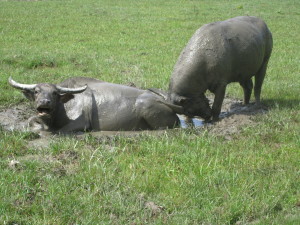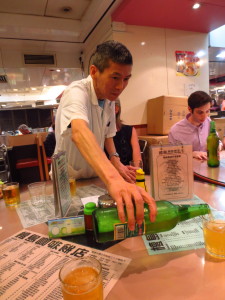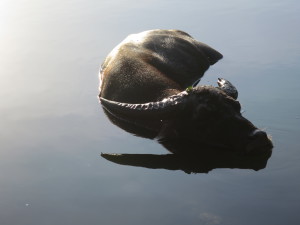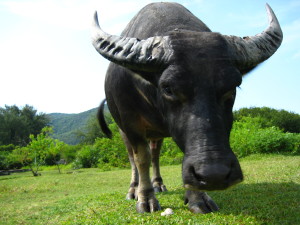- Details
дима: Ты лучше всех!
I’ve just come back from another Russian lesson with the excellent Dimitri. People: You think Cantonese is difficult – try Russian. Every word, I mean noun, adjective, verb and adverb, has hundreds of different forms. Even numbers change wildly according to what comes after them. In Cantonese, dollar(s) have only one form: 蚊 (man) . In Russian there are three ways to say “ruble” depending on how many there are. In Cantonese, if you can count to ten and know the words for hundred, (百) thousand (千)and ten thousand (萬) you can basically count to as many millions as you want, using the same one-syllable words. In Russian, between 1 and 100 there are probably 50 different pronunciations with the number 40 suddenly taking off from the pack and having nothing to do with the number 4.
Then there are the genders of course, and every bloody word veering off to the left and right with only the first syllable (if you’re lucky) known to man. Endings, beginnings, things depending on whether there is one, four or more than five of the bloody thing … It’s like mathematics.
When I’m in the room with Dimitri I go into a kind of trance and can kind of communicate with him by remembering the first few syllables of words and mumbling the rest. When I stand on the pavement outside, shaking lightly and not knowing which direction to walk, I think: What was that all about? If you’d held a gun to my head I wouldn’t be able to remember what had gone on in that room three minutes ago.
So students of Canto: Embrace the Canto. It really is SO easy! When you know ten words, you actually know a hundred words. Whereas in Russian those words will be 1,500 different-sounding words which you have to memorise one by one. I’m just saying.
And the buffalo? Well, that’s a Russian bear with horns.
- Details
дима: Ты лучше всех!
I’ve just come back from another Russian lesson with the excellent Dimitri. People: You think Cantonese is difficult – try Russian. Every word, I mean noun, adjective, verb and adverb, has hundreds of different forms. →
Next Year’s July 1st
So, last Friday, July 1st, I went to Victoria Park to check out the action and also make a podcast: Happy Jellyfish’s Outcast at 1st of July Extravaganza 2011 Oh, it was great. The carnival-like →
PODCAST!!!! Warning: Contains Interview With Longhair!
Friday I went to Victoria Park to see what the people are against this year. Many of them were very against Stephen Lam (林瑞麟)Lam Seui Leun, who they called a (something) dog. Not running dog, →
Farewell Naked Cantonese, Well Hello There … Name?
SO! That was the end of Naked Cantonese. Four years of laughter and tears, trying not to say “crap” on live radio, trials and tribulations, toilets and twits. Although I’ve only ever listened to one →
New Canto Adventure
It’s happening! I’m upgrading this website so you can download films and podcasts. There will be two long videos to begin with, and the above is the ‘for total beginners’ one. One hour and 14 →
Imperialistic Shit-Language
There is something about the internet that brings out the worst in people, like road rage. But also, of course, the best. People become so kind on behalf of others, on the internet. Last week, →
Summertime, And The Living Are Busy
Wei wei, everybody! Summer has descended with quite blue skies and the accompanying 34 degrees, and my students are leaving town in droves. This clears up space and time for you. But you don’t have →
When You Gotta Go, You Gotta Go
So! Yesterday was the last day in the studio followed by three pre-recorded programmes in the series Naked Cantonese on RTHK. And the last episode ever was, very appropriately, recorded in the same public toilet →
Just A Little Experiment
My first experimentation with iMovie’s trailer software. Wow – not half fast and furious cutting! But the point is: Soon you’ll be able to download a new and comprehensive Cantonese information video from this very →
Recently I’ve … not exactly been inundated with invitations to be friends with people on Facebook, but had a few requests. The people who want to, oh how I hate this noun as a verb, →
- Details
Let’s Meat, You Cow
I’m fortunate enough to live in a place with water buffalo all around. This morning when I took my dogs for a walk, I reflected on how the rain makes the water buffalo 水牛 (seoi au, water cow) look so much better than for example mud.

My dog hates rain and was fighting hard to stay indoors but I showed no mercy. How about the buffalo? Do they love water no matter what direction from which it comes? Or do they feel miserable standing there going a darker and darker hue, their hides presumably shrinking?
I also thought of how uncomplicated Cantonese is. Cows are just cows. No need for buffalo, bull, ox, heifer, calf, bovine, cattle and all the other words English uses to express what’s essentially the same thing. And ‘beef’? Naw. Just 牛肉 (au yok, cow meat).
So once you know the name of the animal, 雞,羊,豬 (gai, yeung, jyu, chicken, sheep, pig) or whatever, you can just add the word 肉 (yok) to make it the cooked food, and order away. No need to learn totally new words. And talking of ‘chicken’, what’s with the hen, rooster, cock, cockerel and what not? In Cantonese, 雞!Gai! will do. (But it does also mean ‘prostitute’…)
My students always laugh when I tell them the word for cocktail, 雞尾酒 (gai mei jau, chicken tail wine.) Chicken tail wine, ha ha! But what is it in English, eh?
Think about it.
Back to the mighty water cow, here’s an ode I wrote to its glory:
You can learn all the Cantonese words you need about food and eating and beautiful animals by taking lessons from me; crash-course, regular weekly session or skype! It’s all here in the language bureau.
Contact us today
Email info@learncantonese.com.hk
to find out how you can start learning Cantonese.





